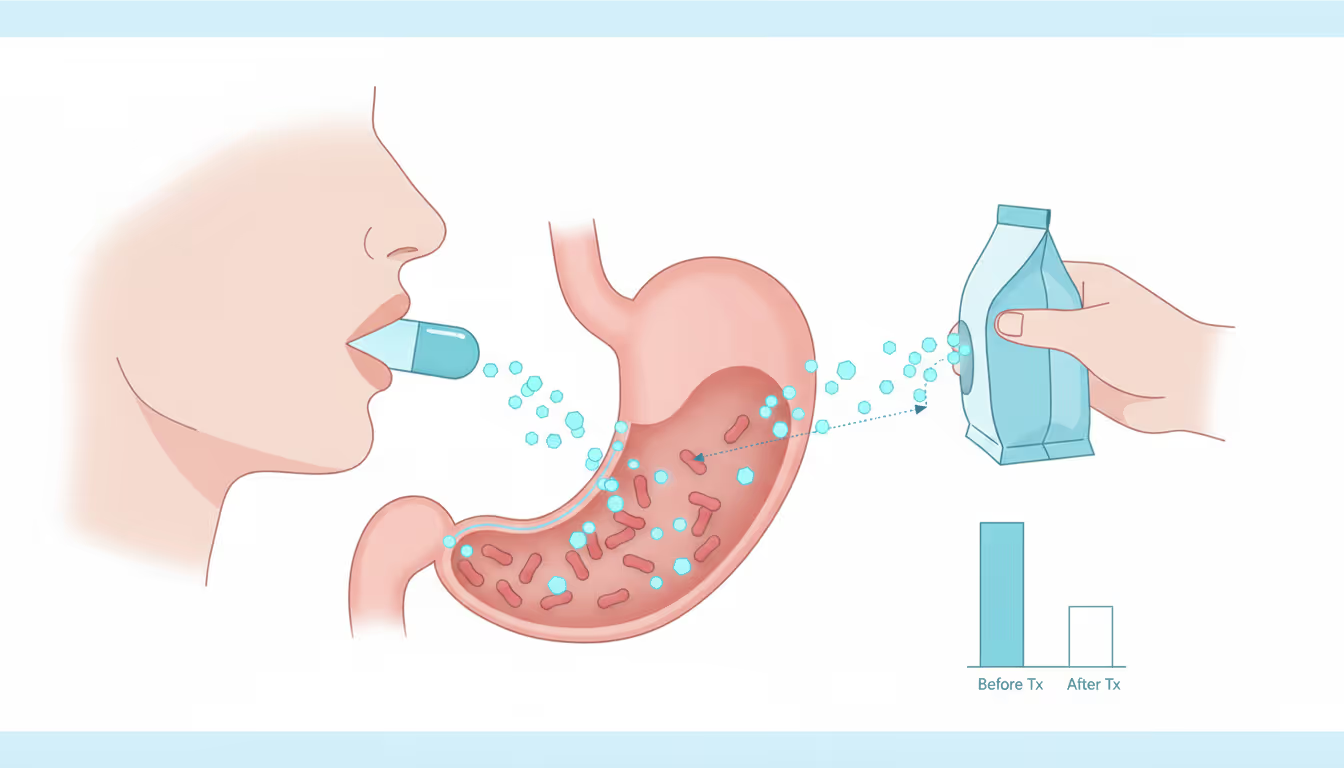
Urea Breath Test (UBT):The Urea Breath Test is a method used to detect the bacterium Helicobacter pylori, which is responsible for causing stomach inflammation and ulcers. Additionally, this test can confirm whether H. pylori has been successfully eradicated following antibiotic treatment.The test works by harnessing H. pylori's ability to decompose urea, a compound composed of nitrogen and carbon. Urea is naturally produced by the body as a way to eliminate excess nitrogen through urine. During the UBT, patients ingest a capsule containing urea that includes a carbon isotope. These carbon isotopes are rare in nature but can be identified with specialized equipment. If H. pylori is present in the stomach, it breaks down the urea into nitrogen and carbon dioxide. The carbon dioxide is then absorbed through the stomach lining into the bloodstream and subsequently expelled in the breath.The breath samples are collected, and the isotopic carbon in the exhaled carbon dioxide is measured. If the isotope is found in the breath, it indicates the presence of H. pylori. Conversely, if no isotope is detected, this suggests that the bacterium is absent. After successful antibiotic treatment, the test results will shift from positive (indicating the presence of the isotope) to negative (indicating its absence).




